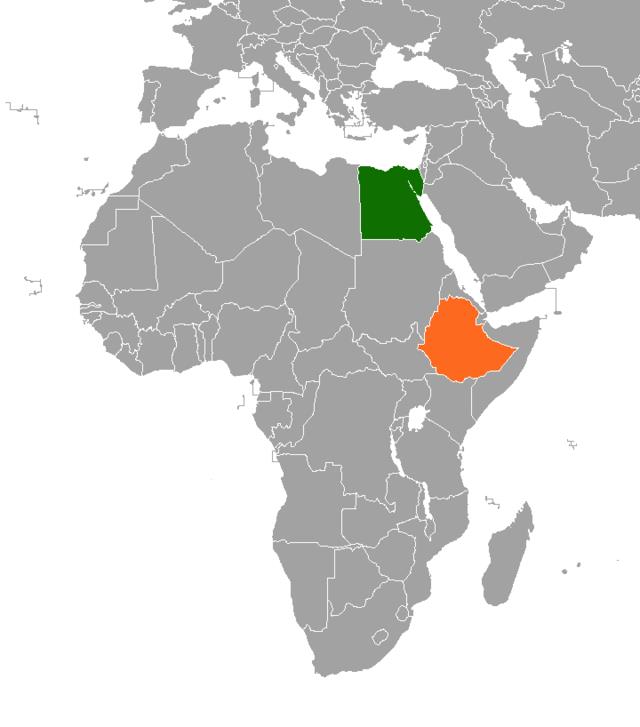
Ethiopia Claims Egypt Is Hatching Plans To Disrupt Dam Project
Ethiopia's energy authorities have raised fresh allegations against Egypt, accusing it of attempting to block the progress of the Grand Ethiopian Renaissance Dam, one of the continent's most ambitious infrastructure projects. The accusations come ahead of what Ethiopia says will be a significant step in its development, as the country gears up for the operationalisation of its colossal hydroelectric power facility on the Blue Nile.
Asheber Balcha, CEO of Ethiopia Electric Power, voiced strong criticisms, asserting that Egypt has been engaged in diplomatic manoeuvres to stall the dam's final stages. He accused Egypt of“scrambling to create obstacles” in efforts to disrupt Ethiopia's plans to complete and begin utilising the dam's full capacity.
The GERD, which has been under construction for over a decade, is positioned to provide a transformative source of energy for Ethiopia. With a projected generation capacity of 6,450 megawatts, the dam is set to revolutionise the country's energy infrastructure, boosting its economy and providing electricity to millions. It also promises to provide energy for neighbouring nations, further increasing its regional importance.
However, the dam has become a source of contention between Ethiopia and Egypt, with Sudan also raising concerns. Egypt, which relies heavily on the Nile for its water supply, views the project as a direct threat to its access to water. The dam, built on the Blue Nile in Ethiopia, will regulate the flow of water downstream, a critical concern for Egypt, which fears a reduction in the river's flow could jeopardise its water security.
Ethiopia, on the other hand, contends that it has the right to utilise the Nile's resources for its development, arguing that the GERD is vital for its growth, offering much-needed power for a rapidly expanding population. The Ethiopian government has maintained that the dam will not significantly harm the downstream nations' water supply, but this stance has done little to assuage Egypt's worries.
See also Ethiopian Airlines sees rise in revenue with expanded routesOver the past decade, negotiations over the dam have been drawn out and at times stalled. Despite multiple rounds of talks brokered by international mediators, including the United States and the African Union, the three countries have failed to reach a binding agreement on how the dam will be operated, especially during drought conditions when water levels may fluctuate.
Ethiopia's accusations against Egypt come amid renewed diplomatic tensions. Last month, Egypt requested that the United Nations Security Council intervene in the dispute, calling for international oversight of the dam's construction and operation. Ethiopia, meanwhile, rejected this call, asserting that the matter should be resolved through direct negotiations between the three countries, in keeping with previous agreements.
The ongoing dispute has had significant political ramifications. Egypt, under President Abdel Fattah el-Sisi, has long used the dam issue as a platform for rallying domestic support. The narrative of protecting Egypt's water resources has become a central theme in the country's foreign policy, with el-Sisi warning that any threat to Egypt's water supply would be met with“all options on the table.”
Ethiopia, on the other hand, has defended its right to construct the dam, positioning it as a critical project for national development and regional integration. Addis Ababa has pointed out that the GERD could benefit Sudan as well, with the potential for flood control and the provision of additional energy.
The dispute over the GERD has spilled into the international arena, with various regional and global powers weighing in on the matter. While some nations, such as the United States, have encouraged Ethiopia, Egypt, and Sudan to negotiate in good faith, others have expressed concern over the potential for conflict. The United Nations and the African Union have both been involved in attempting to mediate the talks, though progress has remained limited.
See also UAE Hosts Key Africa Debate Conference in Dubai Notice an issue? Arabian Post strives to deliver the most accurate and reliable information to its readers. If you believe you have identified an error or inconsistency in this article, please don't hesitate to contact our editorial team at editor[at]thearabianpost[dot]com . We are committed to promptly addressing any concerns and ensuring the highest level of journalistic integrity. Legal Disclaimer:
MENAFN provides the
information “as is” without warranty of any kind. We do not accept
any responsibility or liability for the accuracy, content, images,
videos, licenses, completeness, legality, or reliability of the information
contained in this article. If you have any complaints or copyright
issues related to this article, kindly contact the provider above.


















Comments
No comment